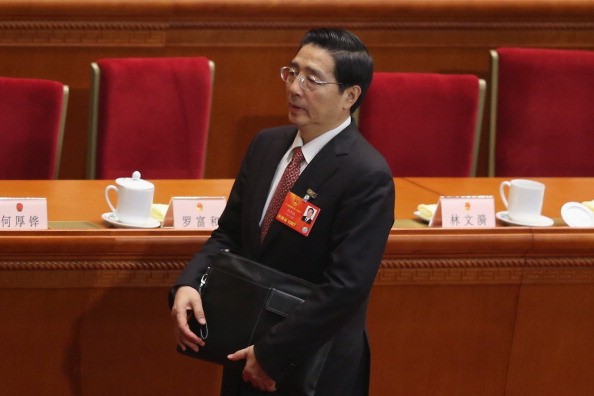China opposes any moves to legalize the use and sale of narcotics, Chinese state councilor Guo Shengkun said at the U.N. General Assembly in New York on Tuesday.
Guo made his remarks during a special three-day session to review the progress and challenges facing the current global war against illegal drugs.
The councilor, who heads the Chinese delegation to the U.N., is also the head of China's national anti-drug commission and public security ministry.
"We should firmly oppose any efforts to legalize narcotics and also respect and support the differentiated policies and strategies each country adopts," he said. "There should always be a comprehensive, balanced, scientific evidence-based anti-narcotic strategy in place to uphold the authority, stability and inclusiveness of anti-narcotic policies."
Guo laid out a five-point proposal, including the formation of equal partnerships, the mobilization of NGOs and civil society, the adoption of differentiated strategies, and the creation of more efficient mechanisms as well as enhancing international cooperation.
According to the latest figures from the U.N., around 250 million people--one in every 20 aged between 15 and 64--used illegal drugs in 2013. Of these, 27 million are suffering from disorders caused by drug use.
Despite a broad agreement, deep divisions persist among the U.N. members, with some nations in favor of decriminalizing drugs.
Several Latin American leaders say the war on drugs has failed and legalizing so-called "soft" drugs such as marijuana is an inevitable trend, while a number of others openly expressed their disagreement.
Guo has called on developed nations to do more in helping these countries and the wider world in general.
"Developed countries should provide funding and technological support to developing countries, and pursue the strategy of alternative development to improve the livelihoods of people living in traditional drug plant cultivation regions," he said.
Guo noted China's investment of 1.6 billion yuan in Myanmar and northern Laos to help residents there to find other trades to replace their work at drug plantations.
The high-level session on the global drug problem, which will conclude on Thursday, is the fourth one in U.N. history.
A draft outcome document, which was adopted at the meeting, suggests that the drug problem should be dealt with an "integrated, multidisciplinary, mutually reinforcing, balanced, scientific evidence-based and comprehensive approach."



























